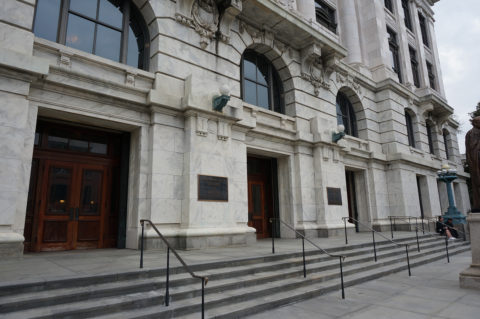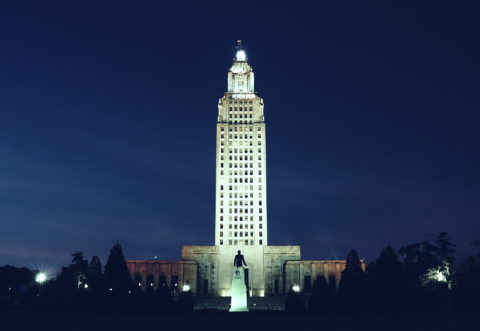Plaisance Law successfully opposed the State’s supervisory writ application at the First Circuit Court of Appeal and application for writ of certiorari at the Louisiana Supreme Court in State of Louisiana v. Justin Zeringue. The case originated from the Seventeenth Judicial District Court in Lafourche Parish. The State argued District Court Judge Steven M. Miller…
In December 2018, the Louisiana First Circuit issued an opinion addressing the finality of judgments for appellate purposes in Advanced Leveling & Concrete Solutions v. The Lathan Co., Inc. In the case, the trial court judgment awarded, among other things, “reasonable attorney’s fees.” The First Circuit found that language to be an “indefinite award” rendering the entire…
Working remotely has become a way of life for millions of Americans during the ongoing global health crisis. This adds to the stress many people already feel in trying to separate their work life from their home life. Here are a few tips from Plaisance Law to help you improve your new work-from-home reality: Dedicated…
Plaisance Law is regularly hired to just handle an appeal or a writ application. One such case was that of Stevenson, et al v. Progressive, et al. The trial attorney had attempted to fax file a petition for damages on the last day of prescription. The transmission, and several subsequent attempts, failed. Little did the trial…
In April 2020, the Supreme Court of the United States found that the Sixth Amendment to the U.S. Constitution requires unanimous verdicts to convict defendants of serious offenses (felonies). In doing so, the court held that the jury trial right requires a unanimous verdict in state courts. The court found that “Louisiana’s and Oregon’s unconventional…
In March 2019 Plaisance Law filed a writ of certiorari to the U.S. Supreme Court for a private client. After reviewing the brief prepared by Marcus J. Plaisance and Mark D. Plaisance, the State of Louisiana was ordered to respond. While considering Plaisance Law’s writ, the Court ruled in Ramos v. Louisiana that the Sixth…
Thanks to an order of the Louisiana Supreme Court issued on April 28, 2020, Louisiana attorneys are now able to earn all 12.5 hours of CLE online. Previously attorneys were limited to earning only 4.0 hours of CLE online. This expansion of the “self-study” CLE credits will enable attorneys to earn the necessary hours during…
The Louisiana Supreme Court recently updated their website to a more user-friendly format. This is great news for Plaisance Law, which regularly practices before the court. Always on the cutting edge of technology, Plaisance Law uses the Supreme Court’s e-filing capabilities to file briefs. This lowers costs by eliminating unnecessary copies and enables us to present…
The most basic distinction between a supervisory writ and an appeal is the appellate court’s discretion to grant or deny. La. C.C.P. art. 2201. See Livingston Downs Racing Ass’n, Inc. v. La. State Racing Com’n, 1996-1215, p. 3 (La. App. 4 Cir. 6/5/96), 675 So.2d 1214, 1216 (The difference between supervisory jurisdiction and appellate jurisdiction…
Mark argued at the United States Supreme Court, a rarity for an attorney given that the court hears less than 70 cases a year of more than 10,000 filed. Mark argued on behalf of Henry Montgomery, asking the court to rule its decision in Miller v. Alabama retroactive. A retroactive decision would give Henry an…
The right to counsel at sentencing is violated when a defendant is represented only by “stand-in” counsel who is unfamiliar with the case, the Louisiana First Circuit held in State of Louisiana v. Eddie Powell, 2013 KA 1153, (La. App. 1 Cir. 2/18/2014). The facts demonstrate that because Powell’s attorney was out of town when…
Can perpetuating testimony be res judicata? Apparently so, according to a recent Louisiana First Circuit Court of Appeal decision. In In Re: William Henry Sanders Application for an Order to Perpetuate the Testimony of William Henry Sanders, 2013 CA 0329 (La. App. 1 Cir. 2/10/14), Sanders, 81, sought to perpetuate his testimony (the primary purpose…
The Louisiana First Circuit now provides a cheat sheet with e-mail notification of a lodged appeal. This “appellate brief structure” hints & tips sheet provides a list of what is now required in an appellant’s brief (the appellee’s brief does not need to contain each section unless there is a disagreement — check the rules)….
Does the Fourth Amendment require a police officer, who receives an anonymous tip about a drunken or reckless driver, to corroborate the dangerous driving before stopping a vehicle? In Louisiana, well yes in the 16-parish First Circuit jurisdiction. Undecided says the Louisiana Supreme Court. And maybe, maybe not in the about to decide United States…
Contrary to popular belief, particularly among the less-informed media, a writ denial by the Louisiana Supreme Court does not make law. Neither does the denial bless or adopt the court of appeal’s factual determinations or expressions of law. See McClendon v. State, Department of Transportation and Development, 1994-0111 (La. 9/6/04), 642 So.2d 157, 158, n….




